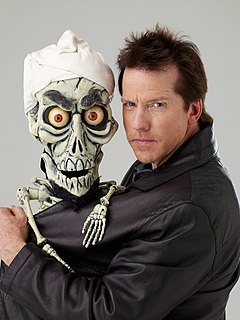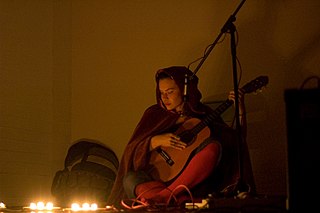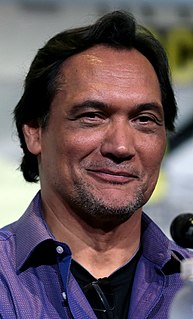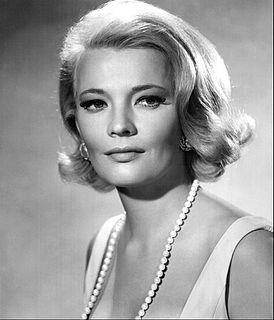A Quote by Leo Kottke
I'm not subject to their rise and fall because I'm not accepted by them, so I have my own little curve going on. A lot of it is because of how much I play, I think I connect like when all you had was Vaudeville, I think I have an audience by performing a lot!
Related Quotes
I think there's a lot of, unfortunately, unfunny ventriloquists out there, so they've got a bad rap. It came after Edgar Bergen because everybody had a little cheeky boy dummy like Charlie McCarthy, and everybody decided to become a ventriloquist because Bergen had popularized it. He brought it back from the doldrums of vaudeville.
Anyone can write five people trapped in a snowstorm. The question is how you get them into the snowstorm. It's hard to write a good play because it's hard to structure a plot. If you can think of it off the top of your head, so can the audience. To think of a plot that is, as Aristotle says, surprising and yet inevitable, is a lot, lot, lot of work.
A lot of people that I know are bugged with the idea that they have got to have an audience, or they have got to be liked. I think the more that you fall into that trap it makes your own life harder to come to terms with, because an audience appreciation is only going to be periodic at the best of times.
When I can do an acoustic set, I can sit down and sing. And then when I have a huge arena full of people, there's nothing like that. It's the coolest feeling in the world, but I also like to play small intimate shows because I feel you can connect a little more. And that's something I had to learn - how to connect to a big audience versus the small one.
How forthright does the audience want the broadcasters to be? Because when you tell your truth, there's a lot of anger that comes out. I think it's a good question to ask TV people [executives] too. How much truth do they want to be told? How much truth does the league want told? Because the truth isn't just a positive truth. If you're going to tell the truth, you would be telling a lot of positive and some negative.
Usually, I think it's best to play the song for them once and have them mix it up on the spot, because when the logical mind gets too involved, I think it kills a lot of magic. I just think the subconscious mind is so much smarter, and unfortunately, people do not trust their subconscious. A lot of people just don't access to all of that, the secret genius that's inside of them. And it's so much easier to get it out of a musician if you don't give them a chance to overthink.
It's great to be able to play the bad guy role because you always get a lot to do, but I'm always looking at the why. How does a person get to that particular point? It's those little cogs in the wheel that make it interesting for me to play. Ultimately, I hope for the audience to be engaged with it because it is going to take a turn.
I'm so stupid because I refuse to think that I'm getting older. I get up in the morning, and it's like, 'La, la, la, I'm so pretty.' I still mingle with a lot with young people. I even go to college campuses to talk to them because I know how they think. They don't think I'm boring, either. They think I'm cool, but I want them to think I'm hot!
...People need to ask, "How do I play the hand that has been dealt me?" The world is not going to give you extra return just because you want it. You have to be very shrewd and hard working to get a little extra. It's so much easier to reduce your wants. There are a lot of smart people and a lot of them cheat, so it's not easy to win.
I think one of the things that is important, for me, though a lot of people would disagree with me, is that you be founded in theater so that you understand what an audience is, what kind of an animal it is and how to play with it. How to have fun with it, how to sympathize with it, all the things that an audience is. I don't think you're going to find that out unless you do theater.
Because John Cassavetes was so terrific in live TV, a lot of his friends had not been able to participate in that yet and so they asked if he would gather with them at night when I was at the play and tell them what live TV was like, what you had to adjust to because it was its own medium - it had many things you had to be aware of.
I have a children's theater background, so I grew up performing for child audiences; it's sort of my specialty. I know the child audience pretty well - or felt like I did because I performed for them so much. I studied a lot about the child audience, about theater. So it was naturally a place that I gravitated to.
Performing as a musician is a lot different than performing as an actor. As an actor, you can hide behind the character in the play, and there's a director and other actors. When you're a musician, you're right there. It's sort of like being a comedian. You're giving the audience in real time something authentic from yourself. As an actor, my bullshit meter was going off like crazy at my first attempts to find my own rock star.



































